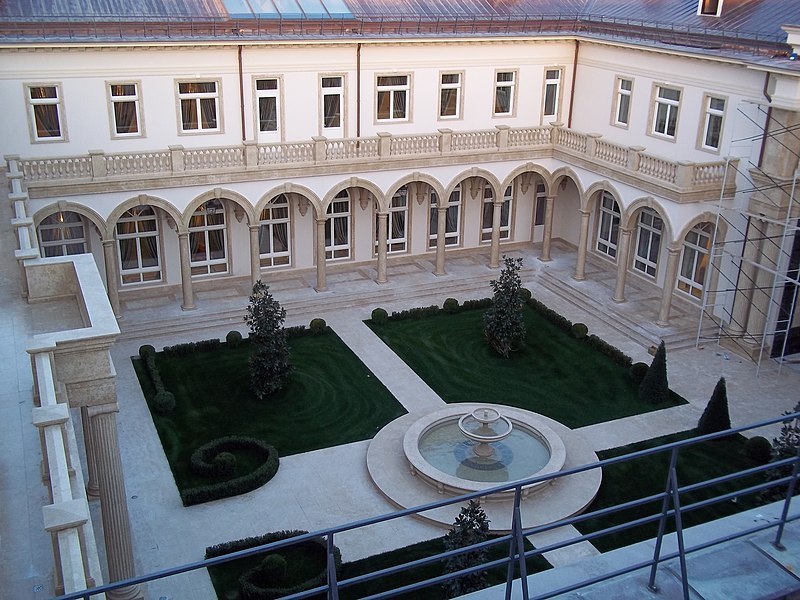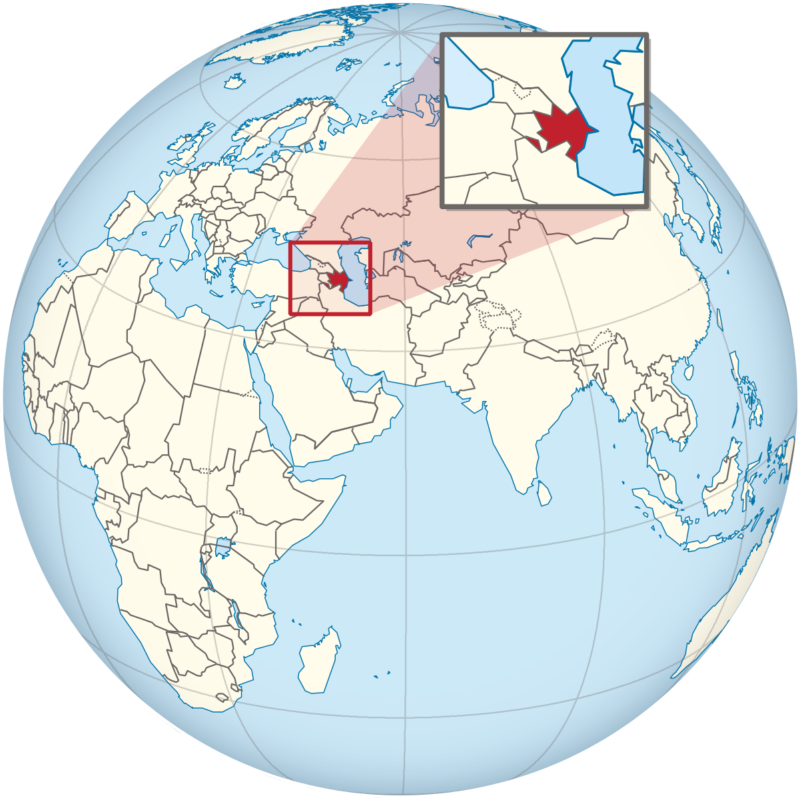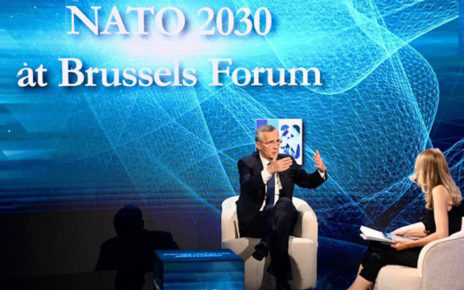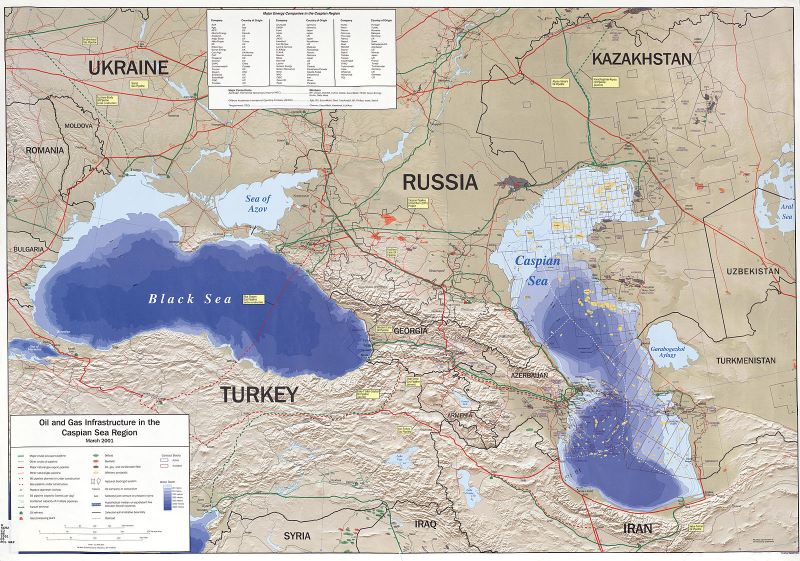For more than two decades, there has been a close relationship between Russian President Vladimir Putin and his government on the one hand and, on the other hand, the Russian energy sector and the powerful figures in charge of the latter. Russian political critic and activist Alexei Navalny and his supporters, through his Anti-Corruption Foundation (FBK), have been exposing examples of alleged corruption in this sector and the government more broadly, arguing for more public transparency and accountability. As a result, Navalny was poisoned and jailed. Other activists likewise face imprisonment and censorship. Externally, Putin has sought to reinforce his geoeconomic influence and leverage via the energy sector through the NordStream 2 (NS2) project.
Large protests have swept through Russian cities in support of Alexei Navalny, particularly since January 2021. At the centre of these protests are allegations against President Putin’s government of rampant pay-to-play corruption, which Navalny has helped expose through a series of investigative videos posted on his YouTube channel. Aside from the military and internal-security apparatus, Putin’s rule relies on the support of a few wealthy elites, including from the energy sector, in return for which he provides key government positions and contracts to these supporters. According to reports by such organizations as Freedom House, and other international non-governmental organizations promoting civil rights, democracy, and accountability, Russia under Putin’s leadership is highly illiberal and ranks amongst the least free countries in the world. Symptomatic of this corruption is that a recent new law, adopted without significant opposition, authorizes Putin to continue to be re-elected president for additional terms, putatively serving as long as 2036.
A significant part of this system is thus led by figures in the energy industry: primarily from the oil, natural gas and mining sectors. According to the business magazine Forbes, the eight richest billionaires in Russia have earned their wealth partly or primarily from the energy sector. Notably, Alexey Mordashov, Russia’s richest person, has accumulated over US$29.1 billion (C$35.2 billion) through his steel company Severstal. Meanwhile, Vagit Alekperov, worth US$24.9 billion (C$30.1 billion), has gained his spot in fourth place through his role in the oil giant Lukoil. Many on the billionaires’ list members have been sanctioned by Canada and the United States, notably Alekperov under the Trump Administration. The Navalny camp have pleaded with the Canadian government to pursue a similar sanctions program targeting key Putin regime officials and allies. Such sanctions would include members of Russia’s energy sector, a great part of which is state-owned and operated. NATO has generally supported such a course of action, issuing in mid-April 2021 a statement that backed US sanctions against Russia’s “destabilizing behaviour”.
In response, these protests and sanctions have pressured Putin into implementing harsh measures in retaliation. Domestically, Navalny remains in custody under heavy surveillance and monitoring. Pro-democracy and anti-corruption protests continue to be quashed by government forces. Russia’s policies in the geopolitical neighbourhood have not changed. Putin’s actions fully support the Belarusian government’s crack-down on protests against its president, Alyaksandаr Lukashenka, and Moscow’s position in occupied eastern Ukraine has not changed. The NS2 pipeline remains a purely geoeconomic project that would increase Europe’s energy dependence on Russia. The pipeline also provides for a heavier Russian navy and intelligence presence in the Baltic Sea. It has also been associated with Gazprom corruption, further entrenching the company’s position within Russia’s energy sector as well as its government.
Both Canada and NATO have put diplomatic and economic pressure on Putin’s government to relax its domestic political repression and foreign geoeconomic pressure. Canada has continued to sanction high-level Russian government officials. Nevertheless, corruption remains endemic to Russia’s energy sector and closely tied to Putin’s long-standing rule. At present, only very few Canadian companies, one which is Kinross Gold Group, have stakes in Russia’s incredibly vast energy supplies and markets. Market liberalization, as promoted by organizations such as the Foundation for Economic Education (FEE) and the Renew Democracy Initiative (RDI), would certainly change that.
Yet, as reported by Pew in 2019, only 38 percent of Russians approve of their country’s free market economic system, down from 50 percent in 2009. The same survey also showed that only 43 percent of Russians support their country’s transition from a single-party to a multiparty system, also down by 10 points over 10 years. Therefore, while such reforms would be beneficial both internally and globally, few Russians support them. They are thus unlikely in the near future, moreover still less so under any Putin government. Such reforms would nevertheless benefit the Russian people, and then neighbouring authoritarian regimes such as Belarus could have better chances at liberalization. However, with Putin’s rule being self-extended to 2036, this vision is not on the near horizon.
Image copyright: The courtyard of Vladimir Putin’s palace in Krasnodar Krai, Russia (2010), by Russian Wikileaks via Wikimedia Commons. Licensed under CC BY-SA 3.0
Disclaimer: Any views or opinions expressed in articles are solely those of the authors and do not necessarily represent the views of the NATO Association of Canada.




